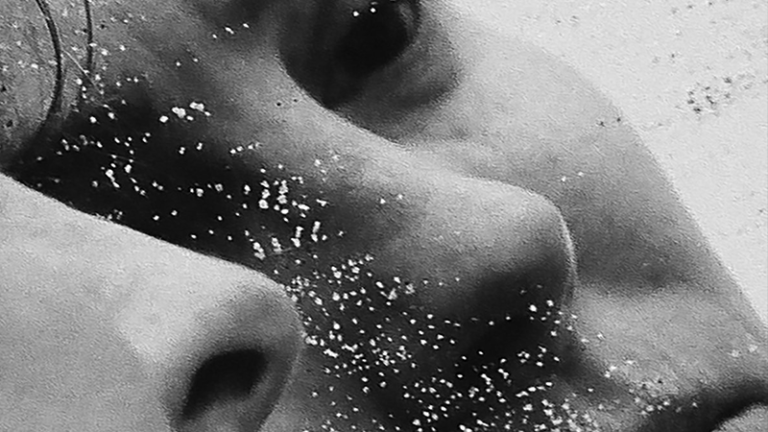“I was robbed of my mask in some Engine of Hell.”
Those familiar with Emma Ruth Rundle’s catalogue of work will know it is shrouded in melancholy and darkness. Whether it’s previous solo pieces such as Marked For Death, or gothic collaborations with Thou and Chelsea Wolfe, Rundle’s lyricism and emotional grappling accompanied by roaring electronics guitars and noisy drums made for stark listening. With Engine of Hell’s debut single, “Return“, it quickly became evident that Rundle’s latest album is going to be a departure from her previous sound. The band arrangement has been traded in for the lone piano or guitar, the pounding of drum toms replaced with gentle B9 chords. The minimalism leaves each note and lyric across the album to be heard.
Engine of Hell introduces itself with the aforementioned “Return“, the lone chords of Rundle’s piano filling the void, a flip from the guitar that has previously greeted listeners. Melancholy sinks in from the opening progression, before Rundle’s devastatingly beautiful falsetto vocals introduce themselves. The vulnerability on display quickly becomes evident. Upon reaching the lines, “Author of a Poor Design / No one to steady your hand”, the emotion is enough to make the tears rise below the eyes. Each note and lyric has a pure like porcelain quality to it, the delicate nature of the track giving it its beauty. “Return” is arguably one of the finest tracks Rundle has penned to date, and Engine of Hell is only just out of the opening gates.
The journal stylings of Engine of Hell further reveals itself on the following track, “Blooms of Oblivion”. Rundle’s historical instrument of choice, the guitar, making its first appearance on the record. In what begins a pattern of switching between piano and guitar song-for-song, until the closing stretch. A gentle opener using lower octaves compliments Rundle’s voice and accentuates the atmosphere. Softly delivered lyrics “Down at the methadone clinic we waited / hoping to take home your cure” brings into view the memories Rundle is recounting on the record. There is a subtle progression on the track of moving up from an A and B flat into a D and E flat to give a crescendo-esque finish. The soft-nature of the track does slightly fall victim to its predecessor, “Return“, the weight of the opener still being processed mentally while the strums of the guitar proceed on the track.
The traverse into Engine of Hell does not ease up with “Body“, a song recounting a childhood memory of seeing a deceased family member taken away. With lines such as, “You know my arms are always around you” and “I’m still a little girl that needs you one more time”, Engine of Hell continues to knock at the soul like few pieces of music are able to. The piano’s touch and vocal melodies further peel back at the painfully human nature of the album.
“The Company” touches on themes that previous albums such as Marked For Death have reached for. “The soul is so much brighter now, without you”, reflecting on a bygone doomed relationship. Not moving beyond the open chords, the somber mood creeks . The harmonic humming of Rundle, and the latter of the previously mentioned lyrics offering up a small glimmer of hope on Engine of Hell. The following track, “Dancing Man“, is one of the most delicate tracks on the album. Despite its presentation, it reflects upon a cherished memory of Rundle’s, dancing with a friend that provides her solace in the dark moments. The brief line “All I know of love” reminds us of the only thing that protects us from the cruel realities of the world.
The notes of Rundle’s guitars dance as she delivers, “Spending all my money as the petty cash of youth runs out”, the somewhat joyful nature of the guitar avoiding the mellow lyrics in the opener of “Razor’s Edge“. The pleasant nihilism of the track provides brief refuge, while Rundle plucks away at the chords of her guitar. Before back-to-back guitar tracks continue with “Citadel“, a solitary track both lyrically and instrumentally. “Here in my citadel of self, I can be safe,” Rundle ruminates, reflecting on the self-preservation and strength the past has forced. And perhaps offering up some strength before the moving closer.
Engine of Hell’s closer is one deep in metaphor, the minor chords and breathy vocals of its opening have a loose nature to them. Pondering on nothingness of death and becoming free of the burdens of past days. It’s the most cathartic of the album, all the emotion from previous tracks being digested in the somber tones of “In My Afterlife“. As the chords move up to a major, it’s a track that offers a reassuring tone. As Rundle sings, “And now we’re free”, sees the aforement catharsis meet its full circle.
There are no attempts of sublimation in Engine of Hell, the human condition and its tempestuous waters are presented here. With minimal stylisation, it removes any escape from the narrative through grandiose melodies and soaring lyricism. The raw nakedness of Engine of Hell and its potency ensure the listener endures and experiences the emotion Rundle offers up. The stillness of grief and trauma is perfectly encapsulated in tracks such as “Body” and “Return“, the mood of each track reaching into the depths of the soul. Rundle has managed to beautifully articulate the melancholy of everyday humanity in a simple but magnificent way with her latest work.
10/10
Engine of Hell releases November 5th via Sargent House. Pre-orders can be found here.

